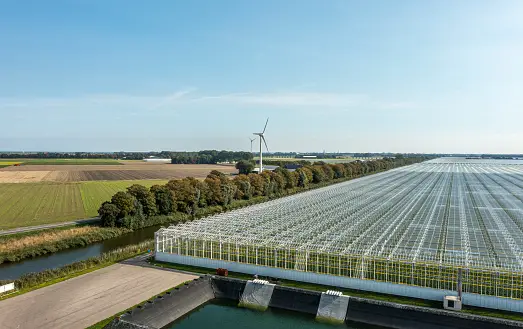Avid Bioservices Poised for Significant Growth with New Partners GHO Capital and Ampersand Capital Partners

- Acquisition of biologics Contract Development and Manufacturing Organisation Avid Bioservices now completed
- GHO and Ampersand’s deep experience in CDMO investing to support Avid’s next stage of rapid growth including expanded offerings, talent investment and greater geographic reach
London, UK, and Boston, MA, February 5, 2025 — GHO Capital Partners LLP (“GHO”), the European specialist investor in global healthcare, and Ampersand Capital Partners (“Ampersand”), a private equity firm specialising in growth equity investments in the life sciences and healthcare sectors, today announced the successful closing of the previously announced acquisition of Avid Bioservices (“Avid”), a dedicated biologics Contract Development and Manufacturing Organisation (“CDMO”) working to improve patient lives by providing high quality development and manufacturing services to biotechnology and pharmaceutical companies.
On 7 November 2024, GHO and Ampersand entered into a definitive merger agreement for Avid to be acquired by funds managed by GHO and Ampersand in an all-cash transaction valued at approximately $1.1 billion.
Avid has experienced significant growth in recent years, offering its clients full lifecycle capabilities—from concept to commercial supply. With substantial investment already made by the company in its capacity at its state-of-the art facilities and its expertise in bioprocess optimisation, analytical testing, and regulatory compliance, Avid delivers high-quality, industry leading complex biologics to a roster of international customers.
GHO has considerable expertise in the CDMO sector through investments in its portfolio in companies like Ardena, Sterling Pharma Solutions, RoslinCT, and Alcami Corporation. Its strategy focuses on expanding technological capabilities, driving acquisitions, and supporting transatlantic expansion across the CDMO value chain, from early-stage development to commercial manufacturing. Leveraging its healthcare expertise and network, GHO Capital transforms CDMOs to enhance their services and market reach, ultimately delivering better, faster and more accessible healthcare.
Alan MacKay and Mike Mortimer, Managing Partners of GHO, commented: “We are delighted to start 2025 with the completion of this transaction, our first public to private deal. GHO has a deep understanding of the CDMO sector and Avid perfectly exemplifies a company that is operating in high growth markets supporting the growing biotech sector in research and development and big pharma and large biotech for the commercialisation of cutting-edge biologics. Avid’s recent investments, both in capacity and its exemplary team, have created a strong foundation for future growth. We look forward to partnering closely with the Avid team to unlock the business’s full potential.”
Nick Green, President and CEO of Avid Bioservices, said: “Avid has always strived to evolve and adapt to meet our customers’ complex development and manufacturing needs. The completion of this transaction marks an exciting milestone as we begin our new partnership with GHO Capital and Ampersand who will provide us with access to significant expertise that will accelerate our growth. With their support, we are well-positioned to enhance our capabilities, expand our service offerings, and deliver even greater value to our customers in this next phase of our journey.”
David Anderson, General Partner of Ampersand, added: “Avid has earned its reputation as a leader in biopharmaceutical development and manufacturing through technical excellence, customised solutions, and consistent regulatory compliance. By combining our deep industry expertise with Avid’s established capabilities, we are positioned to deliver enhanced value and accelerate innovation for clients globally.”
Advisors
William Blair served as buyside financial advisers, Ropes & Gray served as legal counsel, ClearView Healthcare Partners served as commercial advisor and Alvarez & Marsal served as financial advisors to GHO and Ampersand.
About GHO Capital
Global Healthcare Opportunities, or GHO Capital Partners LLP, is a leading specialist healthcare investment advisor based in London. GHO Capital applies global capabilities and perspectives to unlock high growth healthcare opportunities, targeting Pan-European and transatlantic internationalisation to build market leading businesses of strategic global value. GHO Capital’s proven investment track record reflects the unrivalled depth of our industry expertise and network. GHO Capital partners with strong management teams to generate long-term sustainable value, improving the efficiency of healthcare delivery to enable better, faster, more accessible healthcare. For further information, please visit www.ghocapital.com.
About Avid Bioservices, Inc.
Avid Bioservices (NASDAQ: CDMO) is a dedicated CDMO focused on development and CGMP manufacturing of biologics. The Company provides a comprehensive range of process development, CGMP clinical and commercial manufacturing services for the biotechnology and biopharmaceutical industries. With more than 30 years of experience producing biologics, Avid’s services include CGMP clinical and commercial drug substance manufacturing, bulk packaging, release and stability testing and regulatory submissions support. For early-stage programs the Company provides a variety of process development activities, including cell line development, upstream and downstream development and optimization, analytical methods development, testing and characterization. The scope of our services ranges from standalone process development projects to full development and manufacturing programs through commercialization. www.avidbio.com
About Ampersand Capital Partners
Ampersand Capital Partners, founded in 1988, is a middle-market private equity firm with $3 billion of assets under management, dedicated to growth-oriented investments in the healthcare sector. With offices in Boston, MA, and Amsterdam, Netherlands, Ampersand leverages a unique blend of private equity and operating experience to build value and drive long-term performance alongside its portfolio company management teams. Ampersand has helped build numerous market-leading companies across each of the firm’s core healthcare sectors. For additional information, visit Ampersandcapital.com or follow us on LinkedIn.











